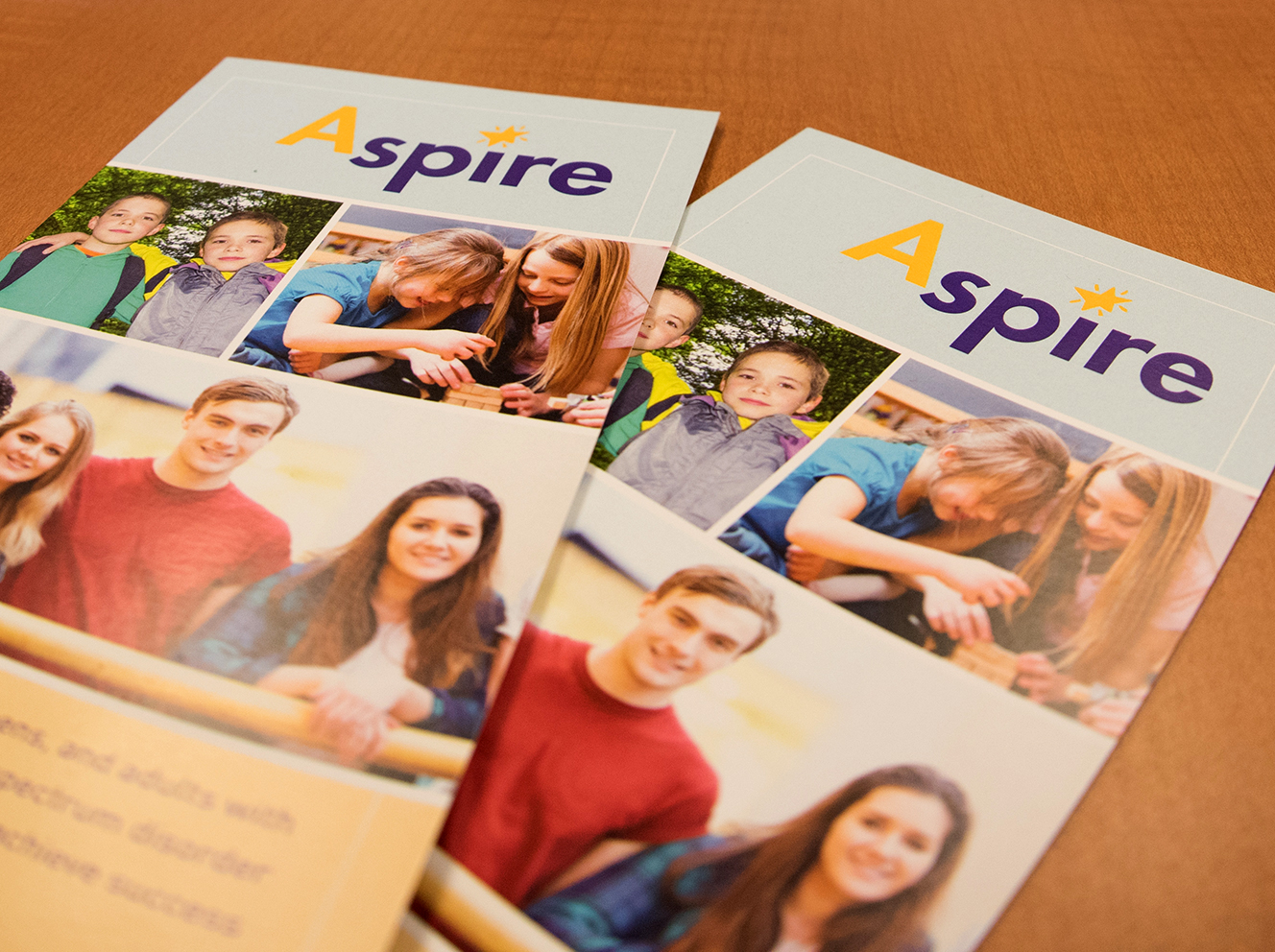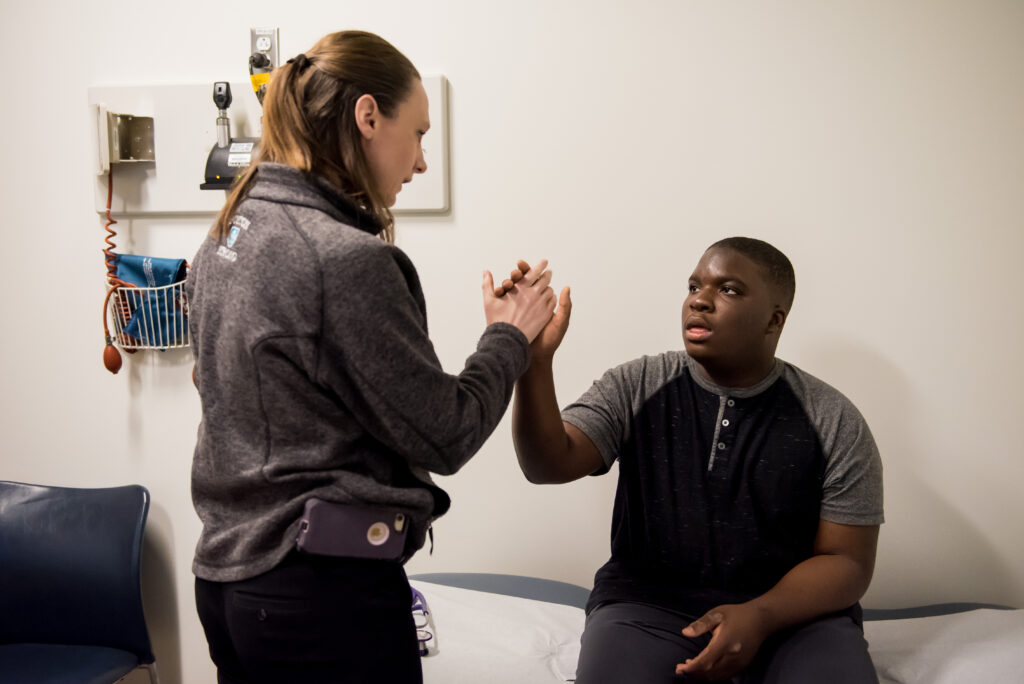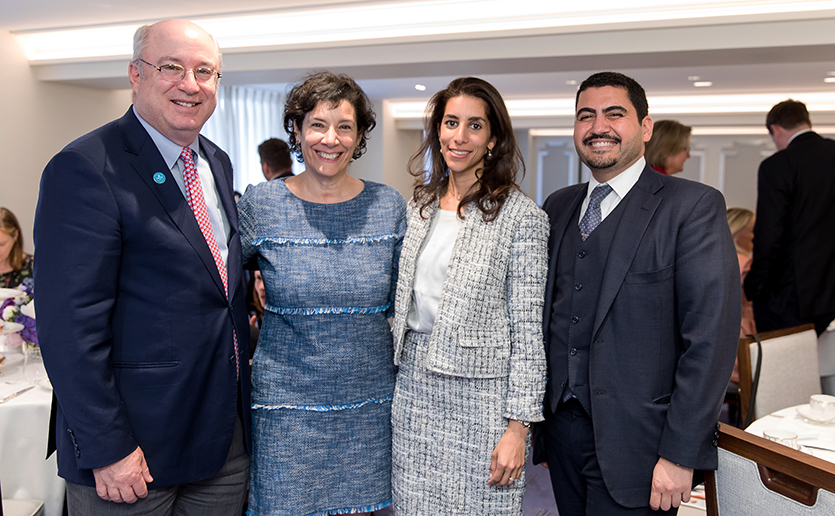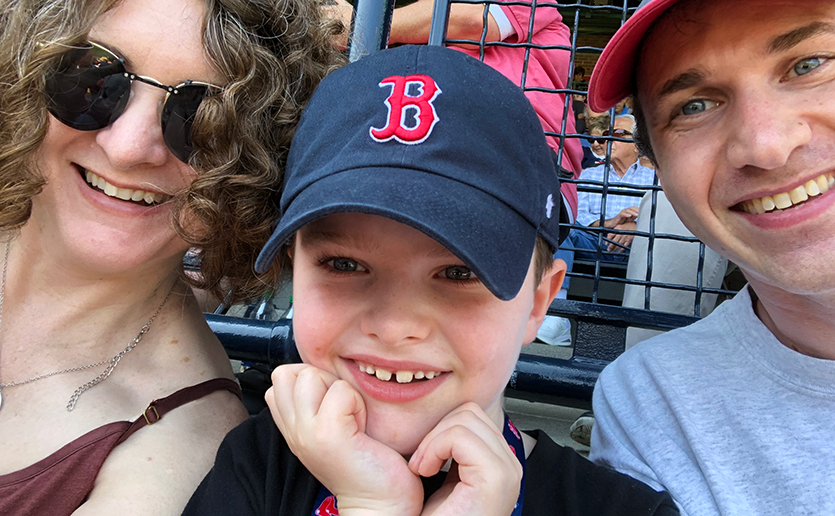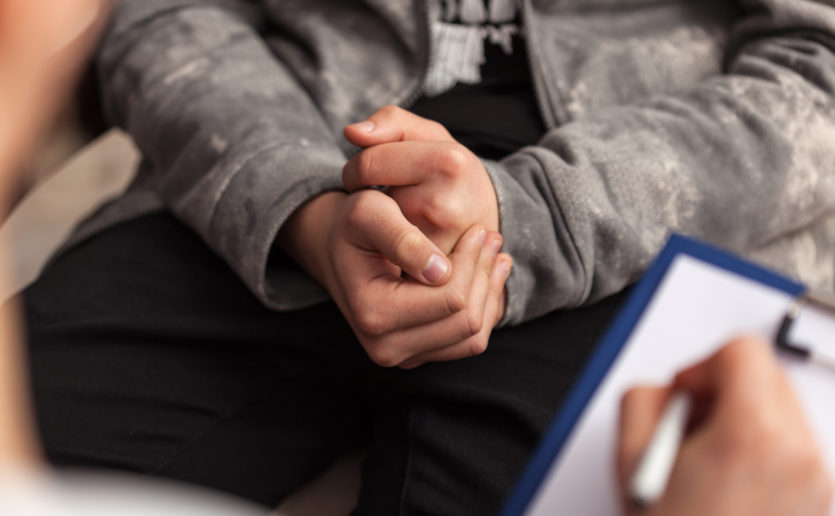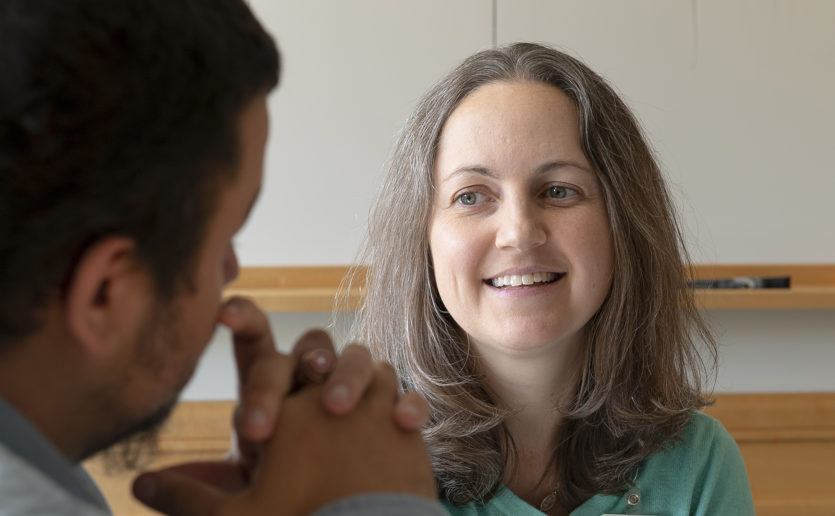When Stephanie Long’s 18-month-old son was diagnosed with high-functioning autism in the late 1990s, she was stumped about what to do next.
“This was one of the first waves when it felt like autism hit a lot of young people,” she says. “No one seemed to know what was going on or why it was happening. No one seemed to understand it.”
Fortunately, the Long family found a place to go a few years later, when their son’s kindergarten teacher told Stephanie and her husband David — who now serves as the CEO of Liberty Mutual — about a summer camp that served children with ASD.
“It was a breath of fresh air,” Stephanie Long says. “We were part of a community where people understood us, which had been really hard to find. We were pioneer parents back then.”
Growing and Evolving
As their son and the other campers grew, the programs offered at that first camp, known then as Camp Bunker Hill, evolved into Aspire at Massachusetts General Hospital. Aspire specializes in helping children, teens and adults on the autism spectrum develop the skills necessary to be successful in their communities and workplaces.
Thanks to support from the Longs, the vision of Executive Director Scott McLeod, PhD, and the efforts of staff, Aspire offers year-round programming for children, teens and adults on the autism spectrum. Programs include both virtual and in-person social groups, summer and school vacation camps, internship programs and consultations and trainings to companies interested in recruiting people with ASD in their companies. Aspire also offers coaching sessions and workshops for parents and caregivers.
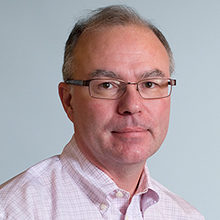
“The best way to serve folks with this profile is to engage them in real-life activities and then provide support, education and opportunities for success,” Dr. McLeod says. “Often, the difficulty in being successful socially for this population isn’t knowing the skills, but rather knowing when and where to use them. The only place you can practice is out in the environment. That’s why these programs are so important.”
The program’s success is driven by an annual fundraising event called the Aspire Spring Gala, which will celebrate its 20th anniversary in-person on May 25, 2022, after a two-year hiatus. The Longs have co-chaired the event along with Liberty Mutual President Tim Sweeney and a longstanding committee for each of the past 20 years, raising more than $24 million for the Aspire program. These funds support more than 50 percent of the operating costs for the program and make it possible for Aspire to offer its services to individuals and families regardless of their ability to pay. Without the philanthropic support driven by the event and its sponsors, Aspire would not exist as it does today.
A Recipe for Successful Experiences
Aspire designs and develops its programs based on feedback and shared interests from the ASD community, then equips participants with management strategies like sensory tools, breaks and emotional regulation techniques, along with opportunities for participants to learn through experience. One of Aspire’s most recent successes is Aspire Works, an internship program that provides short-term work experience opportunities for individuals on the autism spectrum. Interns work at businesses that partner with Aspire. These internships are especially crucial because about 90 percent of people with an ASD diagnosis are unemployed, Dr. McLeod says, and jobs are key to their living a full life.
“We’re changing company culture so when they see someone who is neurodiverse, they have better skills in interacting and supporting them, and valuing the strengths they bring to the company.”
Aspire Works began five years ago at Liberty Mutual and has grown to coach about 30 interns a cycle, which lasts about 10 to 12 weeks. Interns meet for a weekly group seminar to follow the Aspire Works curriculum, and they also connect weekly with their Aspire career coaches and supervisors.
“These short-term work experiences are invaluable in helping our interns identify the type of task and environment where they will be most productive and successful and practice the workplace skills that will be required for long-term sustainable, meaningful, gainful employment,” Aspire Senior Program Manager Elise Wulff, MEd, says. “Our placements boost confidence and competence in the next — and, I would argue, the most innovative — generation of the workforce.”
Aspire Works also helps employees at partnering companies gain an awareness and appreciation of neurodiverse colleagues. Neurodiversity refers to the concept that certain developmental conditions, like ASD and learning disabilities, are normal variations in brain function. Employer partners like Liberty Mutual, Fidelity and GBH participate in Aspire’s Neurodiversity in the Workplace training and demonstrate a commitment to building and maintaining inclusive spaces for neurodiverse talent. Aspire also conducts enterprise trainings on neurodiversity and organizes an Employee Partner Resource Group with workshops and resources.
“Our strategy has been to expose organizations to the individuals we work with who we think will be successful and then help them build their infrastructure so they can find, hire, support neurodiverse people in general,” Dr. McLeod says. “We’re changing company culture so when they see someone who is neurodiverse, they have better skills in interacting and supporting them, and valuing the strengths they bring to the company.”
The Potential for Fuller, Richer Lives
The Longs’ son is now in his late 20s, and his mother takes comfort in how Aspire has helped him become more capable and confident. “This helped his evolution as a person to navigate the social world,” Stephanie Long says. “There are a lot of young people today who would say the same.”
“There’s a real sense of community and belonging. You may have a child with differences, but you don’t have to be alone. That’s important. Aspire is making it possible for these young people to have fuller, richer lives.”
The Longs are in the process of establishing The Common Room, a social club that creates experiences to connect young adults ages 18 to 30. Aspire will collaborate with The Common Room and run certain programs in its physical space. The Longs are also looking forward to the Aspire Spring Gala’s return at Fenway Park, where the event will continue its work to help young people with ASD grow and thrive.
“There’s a real sense of community and belonging,” Stephanie Long says. “You may have a child with differences, but you don’t have to be alone. That’s important. Aspire is making it possible for these young people to have fuller, richer lives.”
To learn more about Aspire, click here.
To learn more about the 2022 Aspire Spring Gala, click here.
